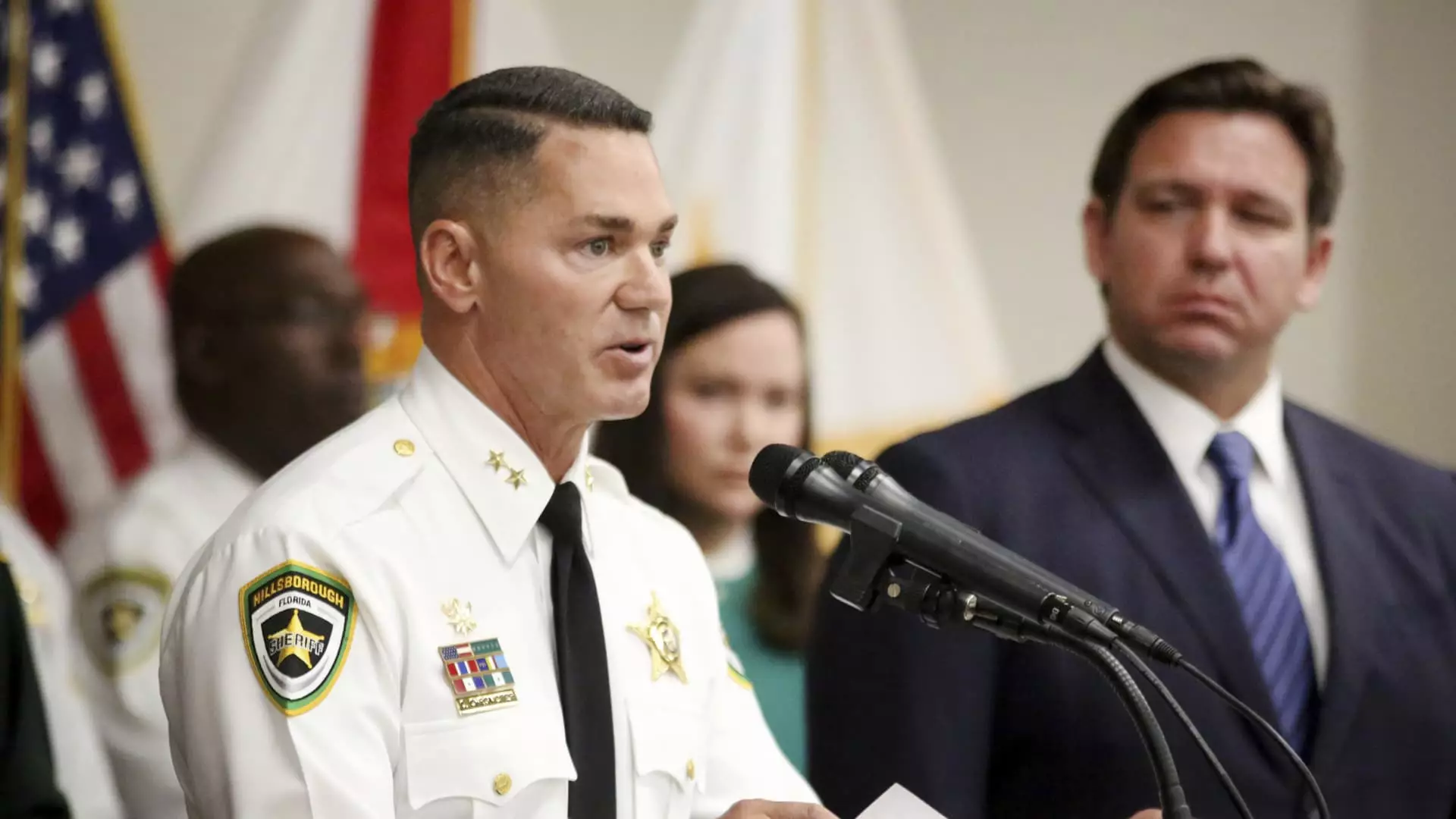In a surprising turn of events, Chad Chronister, who was recently nominated to lead the Drug Enforcement Administration (DEA) by President-elect Donald Trump, has decided to withdraw his name from consideration for the prestigious role. While Nominees withdrawing is not a new phenomenon in politics, Chronister’s decision stands out, particularly given the brevity of his candidacy and the ongoing developments in the ever-evolving landscape of Trump’s presidency.
Chad Chronister, the current sheriff of Hillsborough County, Florida, was nominated over the weekend, initially expressing gratitude and a deep sense of honor for being selected for such a significant position. His nomination came with high expectations, especially as he was expected to collaborate with Attorney General Pam Bondi to tackle urgent issues like the flow of Fentanyl and other illegal drugs crossing the southern border. Chronister’s extensive experience in law enforcement, spanning nearly three decades, positioned him as a strong candidate, reflecting the administration’s intention to prioritize drug enforcement in their agenda.
However, within days of the announcement, Chronister came to the realization that accepting this role would hinder his ability to serve the community he has dedicated years to. His public statement on social media revealed a profound sense of responsibility, emphasizing commitments to various initiatives that he had begun as sheriff. This showcases a commendable dedication to public service, yet it raises questions about the decision-making process behind high-level nominations in political spheres.
Chronister was not without controversy during his brief tenure as a nominee. His decision to initiate the arrest of a local pastor during the COVID-19 pandemic was scrutinized by some factions, with notable criticism emerging from Republican circles. Rep. Thomas Massie highlighted this incident, expressing relief at Chronister’s withdrawal by raising concerns that his record could present potential hurdles in his ability to lead the DEA effectively.
Critics of the nomination may find legitimacy in Massie’s concerns. The arrest of the pastor brought forth arguments regarding individual freedoms and the government’s response to health crises. It devolved a deeper conversation surrounding the moral and legal implications of law enforcement’s role during unprecedented times, an area that many believe should be handled sensitively. Such responses indicate that Chronister’s record could leave an indelible mark on his reputation, impacting perceptions of how he might operate in a role that demands both respect and decisiveness.
Implications for Trump’s Administration
Chronister’s withdrawal is notable as it marks the second official withdrawal from Trump’s administration amid his second term nomination phase. The implications of such withdrawals resonate deeply, indicating potential instability or challenges in attracting candidates willing to embrace roles entangled with public scrutiny and expectation. The administration’s struggle to lock in nominees might be seen as reflective of a broader trend affecting other presidential administrations as well, where candidates may reconsider the ramifications of accepting high-profile positions.
The pressure on nominees can be intense, especially from both sides of the political spectrum. Chronister’s decision to prioritize his work in Hillsborough County stems from a practical concern prevalent among candidates faced with high-stakes appointments, where personal integrity often wrestles with the public interest.
As Trump’s administration seeks to fill the essential role of DEA administrator in the wake of Chronister’s withdrawal, the spotlight will now turn to potential candidates who may navigate similar challenges but remain undeterred by them. The market for qualified candidates may reflect a rarity as prospective nominees weigh their professional associations against the potential for backlash that comes with operating under an administration marked by political turbulence.
The nomination process moving forward will need to account for recent withdrawals and highlight the importance of aligning candidates not only with the administration’s goals but also with the public’s sentiment. Trump’s team must strategically assess the qualities and past actions of future nominees to foster a more stable and effective cabinet.
In the end, Chronister’s withdrawal is more than just a personal decision; it opens a larger dialogue about leadership, responsibility, and the complexities faced by public servants in today’s political context. It serves as a reminder that even within the confines of ambition, the call to serve one’s community should always hold precedence.


Leave a Reply